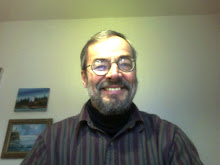The other evening, we had a guest speaker in my writers group. Her focus was on creating for children and she tried hard to inspire us.
Part of her presentation involved writing assignments to recall an early memory, then one from about age 8 to 10, and then something as a teenager. I don’t like to be ambushed by such spontaneous tasks, nonetheless, I struggled through the exercise, trying to stir up my creativity. Typically my muse doesn’t like to work on such short notice, and didn’t this time. I produced only mediocre work, which I didn’t feel comfortable to read to the group.
But the process I found interesting, to flashscan my memory and extract something halfway interesting. For the teenage segment, I came up with an embarrassing incident of an early date with an attractive girl who I took roller skating. Holding hands, we went around in endless circles in the rink; she used me as an anchor to accelerate around the curves. But I was nervous and sweated a lot and in a sharp turn she slipped out of my moist grasp and bounced off the boards. I don’t recall anything else about the event, she simply disappeared from my life.
What did that tell me? That painful and embarrassing events are like bookmarks in the archive of my memory, sort of waypoints on a near-forgotten landscape. Sometimes I can reconstruct happenings around them, and sometimes not.
We also talked about the process of writing, of how some writers plan everything before they start, whereas others have no clue where they will end up. I belong to the later group, and I’m fond of saying that my books were really written by the first sentence. The initial part is dedicated to finding my characters and they finish the book for me. There is considerable leap of faith involved, because the journey is a process of discovery: do I have a story or not? I have been lucky, my dream machine is good at conspiring with my protagonists to reach successful conclusion: 11 times now I could pen "The End" to close a book.
Tuesday, September 28, 2010
Subscribe to:
Posts (Atom)
